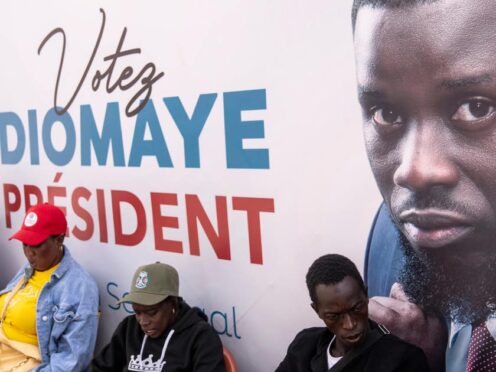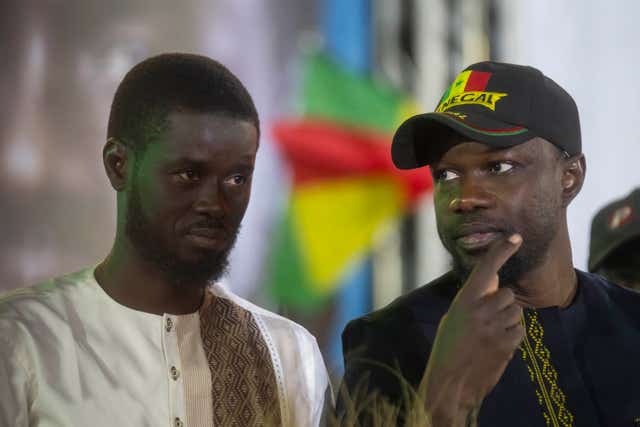
Senegal’s little-known opposition leader Bassirou Diomaye Faye appears set to become the country’s next president, less than two weeks after being released from prison to run in the election.
While official results of Sunday’s vote were not yet available, the former prime minister who was the other frontrunner, and who was backed by incumbent President Macky Sall, conceded defeat based on preliminary results.
Mr Faye’s expected victory reflected frustration among youth with high unemployment and concerns about governance in the West African nation.
The 44-year-old, who was backed by popular opposition leader Ousmane Sonko, has vowed to protect Senegal from corruption and interference from foreign powers like former colonial master France.

Mr Sonko, who was also released on March 14 after months in prison to jubilant celebrations in the capital, was barred from running due to a prior conviction and Mr Faye ran in his place.
There was no immediate comment from the winning team, but a news conference was hastily scheduled to take place that evening.
Mr Sall, who triggered violent protests earlier this year when he unsuccessfully tried to postpone the election until the end of the year, also congratulated Mr Faye in a statement.
His former prime minister and the loser in the race, Amadou Ba, wished Mr Faye success in a statement shared by his campaign team.
The election on Sunday followed months of unrest ignited by Mr Faye and Mr Sonko’s arrest last year, and concerns that the president would seek a third term in office despite constitutional term limits.
The violence shook Senegal’s reputation as a stable democracy in a region that has seen a wave of coups. Rights groups said dozens were killed in the protests, while some 1,000 people were jailed.
The expected winner of the election, Mr Faye is a former tax collector and was little known until Mr Sonko named him as his heir.
“I would even say that he is more honest than me. I place the project in his hands,” Mr Sonko told supporters at a joint news conference in March of last year.
Weeks later, Mr Faye was arrested and jailed on various charges, including defamation.
Alioune Tine, founder of Afrikajom Center, a Senegalese think tank, said the outcome of the vote proved Senegal would survive after a difficult year that had undermined the population’s faith in democracy.
“From prison to the presidential palace,” said Mr Tine. “The only country in Africa capable of withstanding a disease of its democracy that has shaken all its institutions, profoundly shaken its society, only to recover from it.”
International analysts said a change in leadership in Senegal would come as a relief after months of violence, but raised new questions about the foreign policy of the new government at a time when the coastal nation is becoming an oil and gas producer.

Enjoy the convenience of having The Sunday Post delivered as a digital ePaper straight to your smartphone, tablet or computer.
Subscribe for only £5.49 a month and enjoy all the benefits of the printed paper as a digital replica.
Subscribe